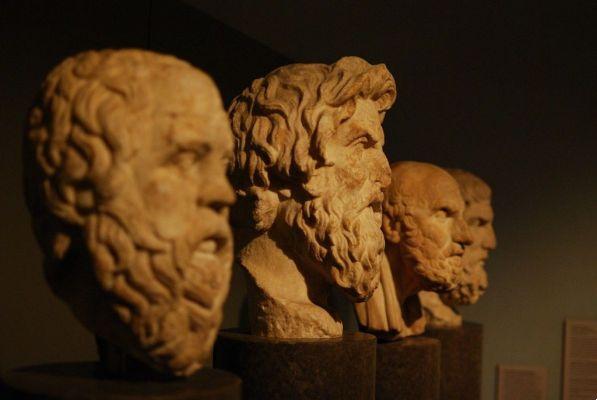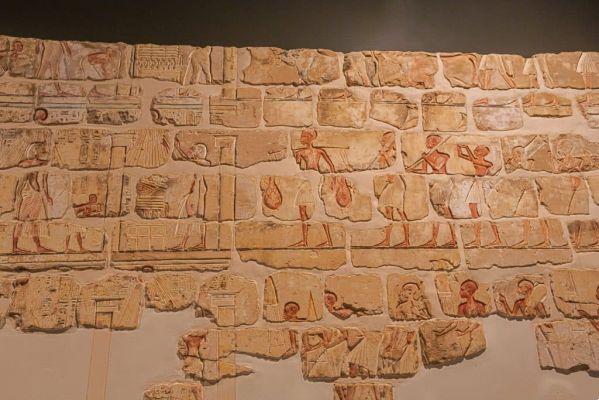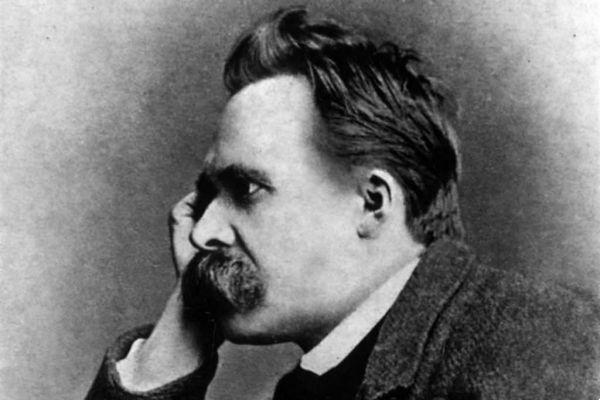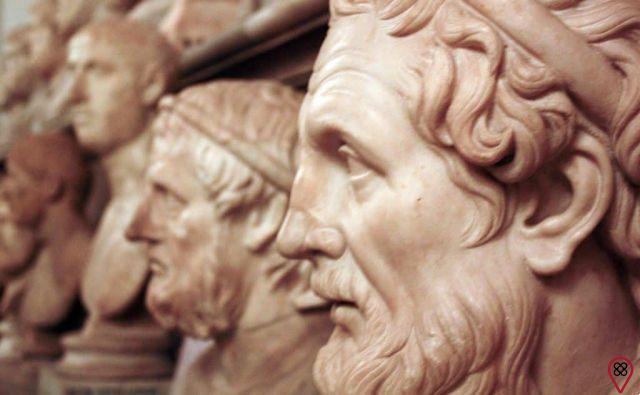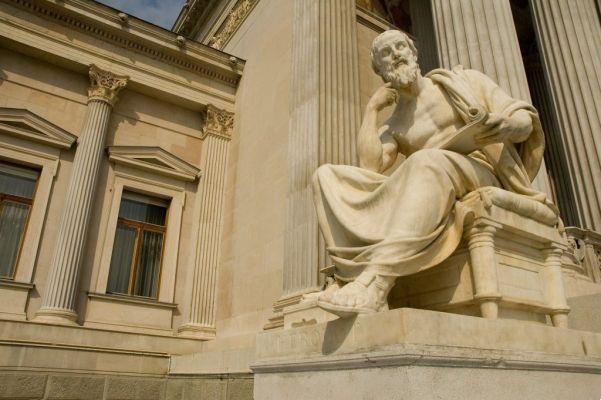Are we or do we just exist? What distinguishes us from inanimate objects or even animals? Are we something fixed or an eternal becoming in the world? These are some questions that are part of the work of one of the greatest contemporary thinkers, the German Martin Heidegger.
If you don't know him, who is one of the most influential authors of the movement known as existentialism, check out our article below!
Who was Martin Heidegger?
Martin Heidegger (1889-1976) is one of the most important contemporary thinkers in our history. Born in Germany, he was a philosopher, writer and university professor. He is known as one of the fathers of the philosophical currents called phenomenology and existentialism.

His main work is “Ser e Tempo” (1927), which, despite having remained unfinished, is considered one of the central works of modern philosophy. In 1929 Heideger became full professor of philosophy at the University of Freiburg, where he became rector a few years later.
Some controversies in his life include his love affair with his student Hannah Arendt, one of the most important philosophers of the 1933th century, and his affiliation to the Nazi Party in XNUMX, but his works were censored in the Nazi years because he refused to propagate anti-Semitism in the university.
Heidegger's main ideas
Heidegger's main idea is a concept called “dasein”, which can be translated as “being there”. According to him, we are not in the world; we are in the world. Because of this, unlike animals, who are, who survive, we are, we can choose and we can transform.
Another topic he addressed is the anguish of death. How will we face life if we were made to die? Then he differentiates again between animals, who live without the awareness that they are going to die, from us, who know this and who deal with the anguish of knowing that we will have an end.
Heidegger was also critical of mass thinking, because, according to him, if we don't make our own choices, if we don't foster our own thinking, we end up letting our actions be led by others, so we lose our individual characteristics.
Martin Heidegger quotes

“We never get to thoughts. They are the ones who come.”
Often, we think that we are the ones who go after what we think, the conclusions we reach, but the truth is that they come to us. How many times have you racked your brains looking for an answer, without being able to find it, then it came spontaneously and “out of nowhere” on a random day?
“Man acts as if he were the lord and master of language, while in fact language remains the master of man.”
When we are going to express ourselves, it occurs through the words that we manifest what we think. Even if we think we are using language and communication to our advantage, they are what command us because we are limited to their knowledge so that we can express ourselves.
“Anguish is the awareness of death as the horizon of life.”
There are those who say that life only makes sense because there is death, and those who think so are not wrong. It is only because we know that the end can happen at any moment and that it will happen that we move in search of what we dream and desire in our lives.
“But where there is danger, salvation also grows.”
If we live a life without facing any risks, without even an adventure, we are likely to leave life as we entered: like a blank page. Only taking opportunities and overcoming the fear of taking risks is what makes us evolve as human beings, and you don't want to stay stagnant, do you?
“Whoever thinks big is also wrong.”
There are two meanings to a sentence like this. One of them is that very old one, almost a proverb, which says: “The higher the height, the greater the fall”, so we need to control our ambitions. Another meaning concerns us being less arrogant, because those who believe they know everything actually run the risk of not knowing anything.
“Every man is born like many men and dies in a unique way.”

There are not and never will be two life stories that can be the same. Even if we are all born the same way: from the cross of the species, from a mother, as a baby and so on, our paths will be very different in life and, when we leave, we will go, individually, each with their own path.
“There is only a world where there is language.”
If we cannot express ourselves, what is the meaning of life? Have you reflected that even when you are thinking, you often think in words, as if you were talking to yourself? It is because of language and communication, even if we communicate only with ourselves, that life takes shape and meaning.
“The world never is, but it happens as a world.”
What is life? If we ask this to 10 different people, each one will give us a different answer, won't they? That's why we can say that in this existence nothing is, in fact, because everything passes through the filter of our subjectivity, so the world molds itself to our look and who we are, since my world is different from your world.
“I give a little clue for those who want to listen: it's not about listening to a series of sentences that enumerate something; what matters is to accompany the march of a show.”
How many times, after talking to someone for a long time, do we realize that that person wasn't really listening to us, in depth? Listening is not just listening to words, but putting yourself into the conversation with attention and depth, which has been lacking in our world.
“Only man exists, as a characteristic way of being in the world, whereas things simply are.”
There's a big difference between being and existing, isn't there? Any object is, that is, it is here among us, but existing presupposes consciousness, making decisions, having personality. Then there is a reflection: what about you, have you existed or have you just been? Isn't it time to live life more instead of watching it go through the window?
You may also like
- Understand how philosophy is in our daily lives
- Learn all about the life and legacy of Friedrich Nietzsche, the great German philosopher!
- Ponder on the meaning of happiness according to Socrates, Plato and Aristotle
Now that you've met Martin Heidegger and some of his main thoughts and phrases, what do you think of the ideas of one of the fathers of existentialist philosophy? Share with us if you see any meaning in them and if you believe you can fit them into your life!











